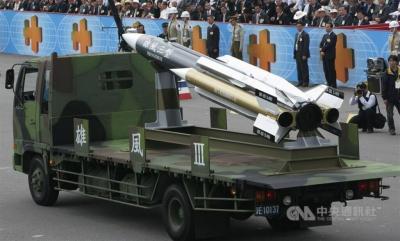Researchers have discovered that speakers of four highly contrasting languages — Spanish, English, Hebrew and Chinese — show very similar patterns of brain activity during reading and speech, which suggests the underlying network for language processing might be more universal than previously understood.
At a news conference yesterday, where results of three international and interdisciplinary studies were announced, National Taiwan Normal University (NTNU) psychology professor Li Jun-ren (李俊仁) said his team tracked and compared reading and speech perception of native speakers of the four languages using functional magnetic resonance imaging and found mostly identical brain activation.
“We could not tell what language a participant speaks from their brain scan, because the same brain areas are activated regardless of what language they speak. We showed, for the first time, that there could be an invariant and universal brain network for reading and speech processing regardless of linguistic differences,” Li said.
It has been a topic of debate whether brain systems could be language specific, but the research showed that both the left and right hemispheres of the brain, but particularly the left hemisphere, are activated when speakers of any of the tested languages are performing reading or speech tasks, which suggests that language processing is predominantly operated by the left hemisphere, and that there could be a universal brain system for all languages, he said.
The finding debunks a myth that Chinese languages were predominantly processed by the right hemisphere, compared with alphabetic languages processed by the left hemisphere, because Chinese was considered a pictorial language and the right hemisphere has been associated with image processing, he added.
Other studies support Li’s findings: A study conducted by National Yang Ming University neuroscience professor Kuo Wen-jui (郭文瑞) discovered that two particular neural circuits, a shape recognition system and a gesture recognition system, are similarly activated and show identical patterns of activation in Chinese speakers and French speakers.
Meanwhile, similar activation patterns in two regions of the left inferior frontal lobe were found across Chinese and French participants when they are processing complex number words, such as seven-hundred-ninety-four, which suggests these regions serve as the neural bases for forming complex number words in different languages, according to a study by National Central University neuroscience professor Denise Wu (吳嫻).
“About 150 years ago, [French physician] Paul Broca proposed that the left hemisphere is responsible for language processing. Today, our team confirmed that reading, writing and arithmetic processing is done by the left hemisphere, which is a universal phenomenon across languages. The team’s findings are to be remembered for a long time,” former minister of education Ovid Tzeng (曾志朗) said.

STATS: Taiwan’s average life expectancy of 80.77 years was lower than that of Japan, Singapore and South Korea, but higher than in China, Malaysia and Indonesia Taiwan’s average life expectancy last year increased to 80.77 years, but was still not back to its pre-COVID-19 pandemic peak of 81.32 years in 2020, the Ministry of the Interior said yesterday. The average life expectancy last year increased the 0.54 years from 2023, the ministry said in a statement. For men and women, the average life expectancy last year was 77.42 years and 84.30 years respectively, up 0.48 years and 0.56 years from the previous year. Taiwan’s average life expectancy peaked at 81.32 years in 2020, as the nation was relatively unaffected by the pandemic that year. The metric

Taiwan High Speed Rail Corp. (THSRC) plans to ease strained capacity during peak hours by introducing new fare rules restricting passengers traveling without reserved seats in 2026, company Chairman Shih Che (史哲) said Wednesday. THSRC needs to tackle its capacity issue because there have been several occasions where passengers holding tickets with reserved seats did not make it onto their train in stations packed with individuals traveling without a reserved seat, Shih told reporters in a joint interview in Taipei. Non-reserved seats allow travelers maximum flexibility, but it has led to issues relating to quality of service and safety concerns, especially during

A magnitude 5.1 earthquake struck Chiayi County at 4:37pm today, the Central Weather Administration (CWA) said. The hypocenter was 36.3km southeast of Chiayi County Hall at a depth of 10.4km, CWA data showed. There were no immediate reports of damage resulting from the quake. The intensity of the quake, which gauges the actual effect of a seismic event, measured 4 in Chiayi County, Tainan and Kaohsiung on Taiwan's seven-tier intensity scale, the data showed. The quake had an intensity of 3 in Chiayi City and Yunlin County, while it was measured as 2 in Pingtung, Taitung, Hualien, Changhua, Nantou and Penghu counties, the data

The Supreme Court today rejected an appeal filed by former Air Force officer Shih Chun-cheng (史濬程), convicted of Chinese Communist Party (CCP) espionage, finalizing his sentence at two years and two months for contravening the National Security Act (國家安全法). His other ruling, a ten-month sentence for an additional contravention, was meanwhile overturned and sent to the Taichung branch of the High Court for retrial, the Supreme Court said today. Prosecutors have been notified as Shih is considered a flight risk. Shih was recruited by Chinese Communist Party (CCP) intelligence officials after his retirement in 2008 and appointed as a supervisor